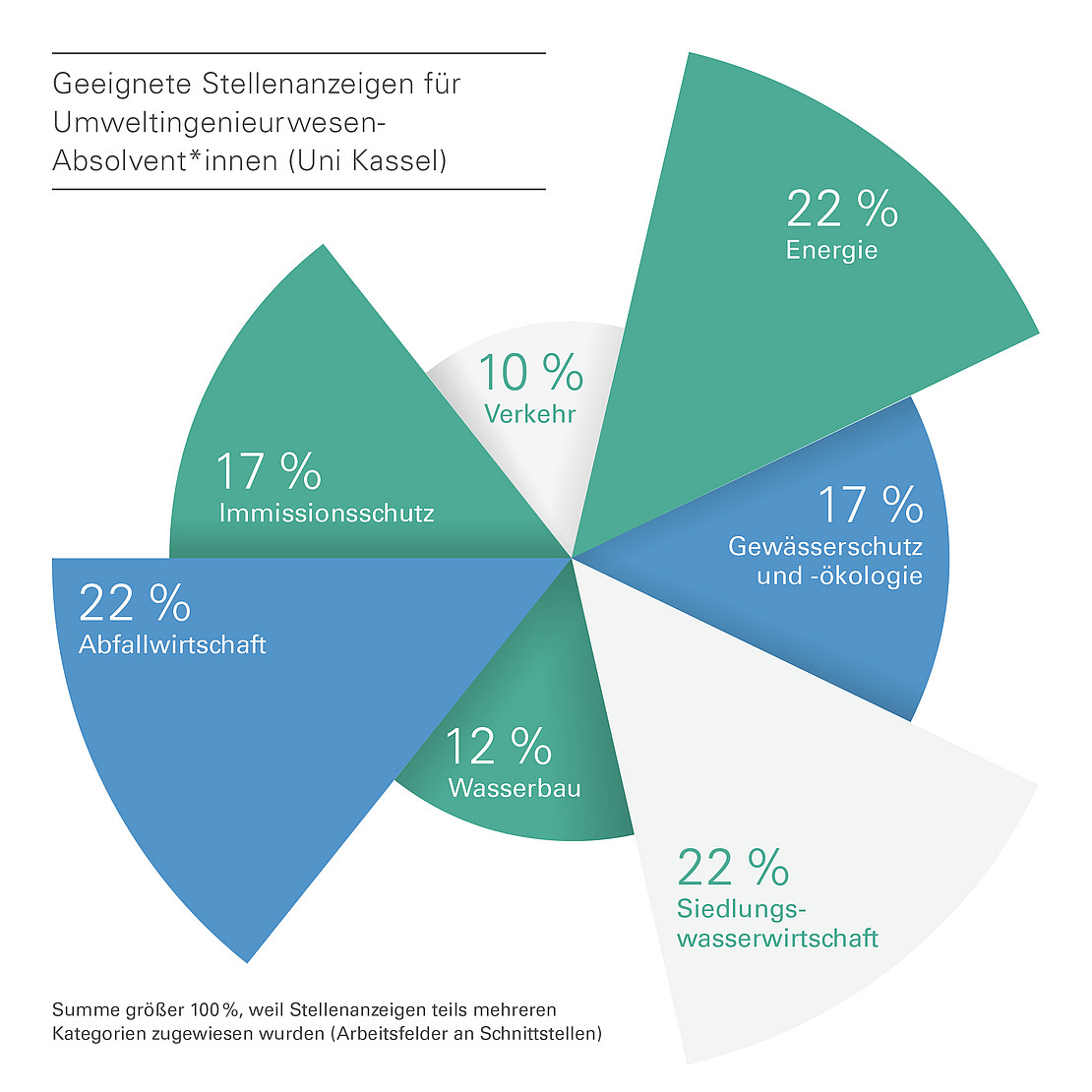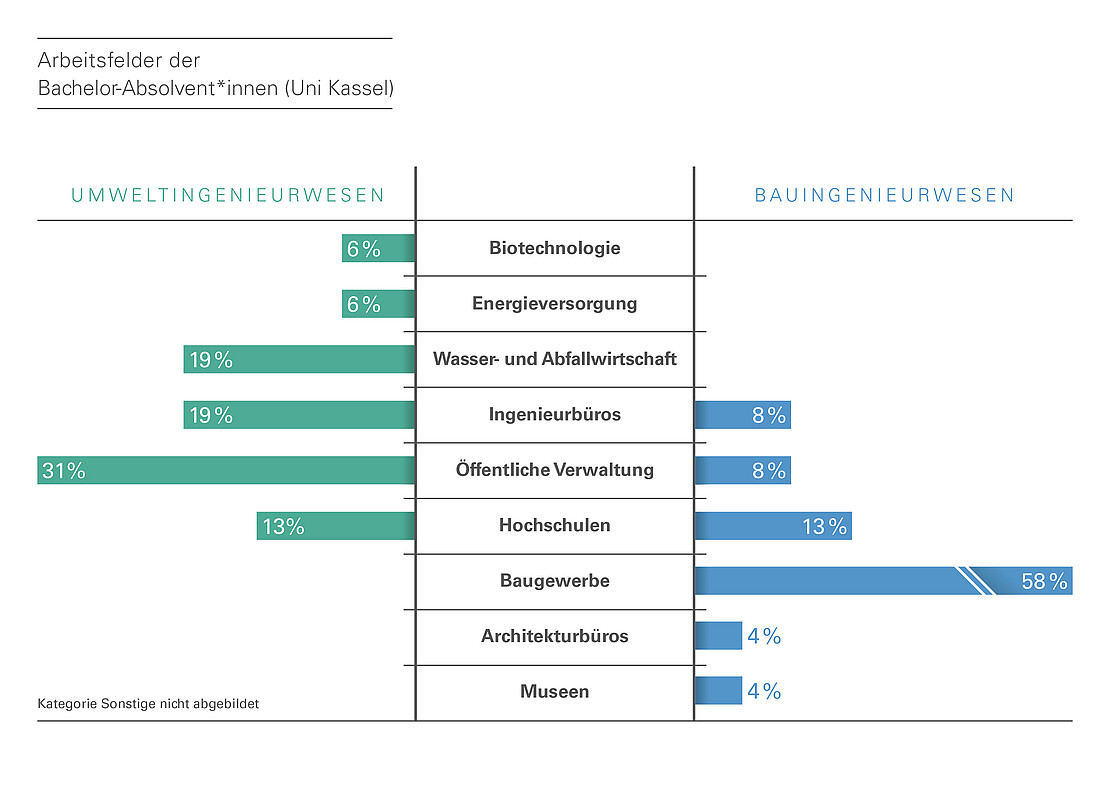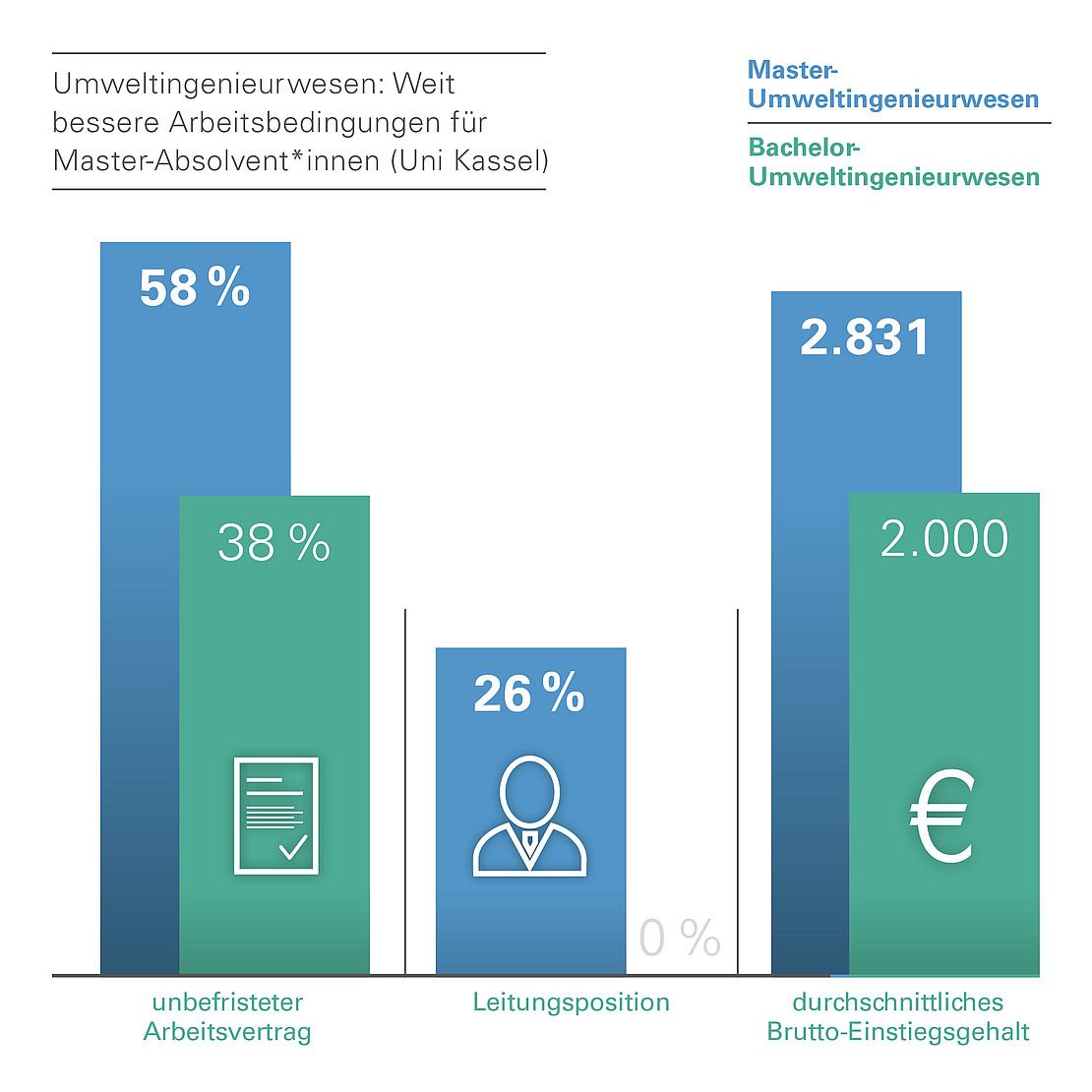Career prospects
The content on this page was translated automatically.
The innovative Environmental Engineering program combines cutting-edge environmental issues with scientific and technological engineering know-how.
What do environmental engineers do?
The job description is closely linked to the disciplines of civil engineering and process engineering. Environmental engineers work in research, industry, engineering offices and public administration. They deal with a wide variety of engineering tasks requiring an in-depth understanding in all environmentally relevant areas and develop environmentally relevant solutions in the interest of sustainable development.
Possible fields of work are...
- Waste management- e.g. disposal, recovery, recycling, landfill technology and contaminated site management
- Urban water management- e.g. drinking water production, wastewater disposal and treatment
- Hydraulic engineering - e.g. flood protection, river restoration
- Energy generation from renewable sources - e.g. sun, wind, water, biomass, geothermal energy
- Environmental management- e.g. water and soil protection
- Environmental management- e.g. energy efficient production, simulation of material cycles, life cycle assessment of processes and production, simulation of environmental risks
- Mobility and traffic- e.g. measures to reduce pollutants
- Consulting- e.g. energy, water, waste, environmentally friendly construction
Activities performed by environmental engineers...
- Management, operation, production in companies active in environmental technology, in particular plant construction and waste disposal, as well as environmental management
- Approval, supervision and control of environmental facilities (e.g. sewage treatment plants, waste treatment plants) by and in public administration or cooperation in environmental associations)
Design, planning and construction supervision of environmental technology facilities in engineering and planning offices
Research and teaching in universities, research and further education institutions as well as cooperation in environmental associations.
The labor market demand
Graduates in environmental engineering are sought somewhat more frequently by public companies and authorities than by private companies. The demand comes from the fields of waste management (22%), urban water management (22%), energy (22%), immission control (17%), water protection and ecology (17%), hydraulic engineering (12%) and transport (10%).
75% of the job advertisements that are suitable for environmental engineers are also addressed to Bachelor graduates or exclusively address them. Nevertheless, 75% of the bachelor graduates of the University of Kassel, also due to the better working conditions (see below), complete the corresponding master's degree after their bachelor studies.

Fields of work of the Kassel graduates
In line with labor market demand (see above), the majority of bachelor's degree entrants (67%) work in the public sector. 31% state public administration, 19% water and waste management, 19% engineering offices and 13% the university as their employer. Only with a master's degree is the construction industry added as a significant employer (17%). At 28%, almost a third of those entering the bachelor's profession work in research.

Working conditions of the Kassel graduates
Even if graduates of the bachelor's degree in environmental engineering have no trouble finding a suitable job, it is worthwhile to complete the master's degree, which 75% of bachelor's graduates do. Especially in environmental engineering, the working conditions of the master graduates are better than those of the bachelor graduates: For example, one and a half years after graduation, Master's graduates in environmental engineering have a higher chance of obtaining a permanent employment contract (58% vs. 38%) and a management position (26% vs. 0%) than Bachelor's graduates. In addition, they have a much higher average gross starting salary (2831 € vs. approx. 2000 €).
